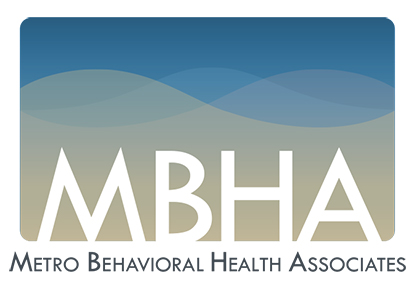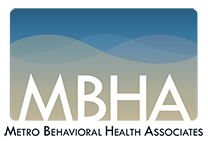The Role of Nutrition in Substance Use Recovery
 At Metro Behavioral Health Associates, we understand the intricate interplay between nutrition and recovery from substance use. Our goal is to support our clients holistically, addressing their psychological and nutritional needs to enhance overall well-being.
At Metro Behavioral Health Associates, we understand the intricate interplay between nutrition and recovery from substance use. Our goal is to support our clients holistically, addressing their psychological and nutritional needs to enhance overall well-being.
The Impact of Substance Use on Nutrition
Substance use can profoundly disrupt the body’s ability to absorb, digest, and utilize essential nutrients. This often leads to significant deficiencies and malnutrition, which can exacerbate physical and mental health challenges. Common deficiencies include vitamins such as B1 (thiamine), B6, B12, folic acid, and minerals like magnesium and zinc. These deficiencies can manifest as fatigue, irritability, depression, and impaired cognitive function, making the recovery process more challenging.
The Role of Balanced Nutrition in Recovery
Proper nutrition plays a critical role in the recovery process by:
Supporting Detoxification: Throughout the detoxification process, individuals may encounter symptoms like nausea, vomiting, and fatigue. The implementation of a well-rounded nutritional plan can assist in alleviating these symptoms, potentially improving the tolerability and effectiveness of the detox process.
Comprehensive Impact: A balanced diet not only supports physical health but also profoundly impacts the brain, immune system, neurological system, and endocrine system, all of which are crucial for mental health.
Nurturing Physical Healing: Nutrient-rich foods provide the body with essential elements to aid in repairing damage caused by substance use, enhancing immune function, and supporting overall well-being.
Intuitive Eating Principles in Recovery
 Intuitive eating is a compassionate philosophy that encourages individuals to listen to their body’s natural hunger and fullness cues. It helps foster a healthier and more trusting relationship with food. This approach can be particularly beneficial in recovery, as it helps individuals move away from restrictive diets and towards a more balanced and fulfilling way of eating.
Intuitive eating is a compassionate philosophy that encourages individuals to listen to their body’s natural hunger and fullness cues. It helps foster a healthier and more trusting relationship with food. This approach can be particularly beneficial in recovery, as it helps individuals move away from restrictive diets and towards a more balanced and fulfilling way of eating.
- Rejecting the Diet Mentality: Recognizing and letting go of the harmful rules imposed by diet culture.
Honoring Hunger: Responding to biological hunger cues to rebuild trust in one’s body. - Making Peace with Food: Incorporating a variety of foods into one’s diet without guilt or anxiety can help promote a healthy relationship with food and reduce the likelihood of restrictive eating patterns.
- Respecting Fullness: Paying attention to the body’s signals that indicate comfortable fullness.
Discovering the Satisfaction Factor: Finding joy and satisfaction in what you are eating. - Developing Healthy Coping Strategies: Developing effective coping strategies to manage emotions without resorting to using food as a means of self-soothing.”
- Movement—Feel the Difference: Shifting focus on how movement feels rather than the calorie-burning aspect of exercise.
Addressing Nutritional Deficiencies from Substance Use
Understanding the common deficiencies caused by substance use is fundamental for developing an effective nutrition plan. Key nutrients often depleted include:
- B-Vitamins (B1, B6, B12): These vitamins are integral to energy production, brain function, and red blood cell formation. Individuals with substance use disorders frequently exhibit deficiencies in these crucial nutrients.
- Vitamin D: This vitamin plays a significant role in calcium absorption and bone health. It promotes bone health by enhancing the body’s ability to absorb calcium from food, which is essential for maintaining strong and healthy bones.
- Magnesium: Magnesium is critical for muscle and nerve function, blood glucose control, and blood pressure regulation. Substance use can lead to significant reductions in magnesium levels.
Iron: Iron is necessary for preventing anemia, a common issue among those with alcohol dependence. Adequate iron levels are essential for maintaining energy and overall health.
Developing a Healthy Relationship with Food
Establishing a positive relationship with food plays a vital role in achieving overall well-being, particularly during substance use recovery. This journey involves mindful and compassionate practices that transform how we perceive and engage with our meals, fostering a sense of balance and nourishment. Here are key practices to support this process:
- Mindful Eating: Practice eating slowly and savoring your food, paying attention to your body’s natural hunger and fullness signals. This approach helps distinguish between physical hunger and emotional needs, fostering a more intuitive relationship with eating.
- Embracing Nutritional Variety: Incorporate a wide range of foods, including fruits, vegetables, whole grains, proteins, and fats, without focusing on restrictive labels. A diverse diet supports overall health, aids in physical healing, and provides the essential nutrients needed for mental and emotional stability.
- Prioritizing Hydration: Drink adequate amounts of fluids to support overall health and enhance the effectiveness of any medications. Proper hydration is crucial for cognitive function, mood regulation, and physical well-being.
Nutritional Guidance in Recovery
A Registered Dietitian (RD) plays a pivotal role in the multi-disciplinary recovery team at Metro Behavioral Health Associates. Their expertise in nutrition is essential for creating personalized, balanced, and practical meal plans that cater to individual preferences, lifestyles, and specific recovery needs. Here’s how working with a dietitian can make a significant difference in your recovery journey:
Personalized Meal Planning
Dietitians work closely with you to understand your unique nutritional requirements and preferences. They consider factors such as your medical history, current health status, and personal tastes to create meal plans that are not only nutritious but also enjoyable and sustainable. This personalized approach ensures that your dietary needs are met in a way that supports your recovery and overall well-being.
Education and Empowerment
A key component of a dietitian’s role is to educate you about the importance of nutrition in the recovery process. They provide valuable information on how different nutrients impact your physical and mental health, helping you understand the connection between food and recovery. This knowledge empowers you to make informed choices about your nutritional plan, fostering a sense of control and confidence in your journey.
Navigating the path to recovery can be challenging, but it’s important to remember that you don’t have to do it alone. At Metro Behavioral Health Associates, we are here to help you develop a personalized nutrition plan and provide the support you need on your journey to lasting health and well-being. With the right guidance and a strong support network, you can confidently take steps towards a healthier, more balanced life.

Helping You Gently Find Your Balance
Ask About Our Free Consulation
Control binge eating and get on the path to recovery. This book provides trusted information, resources, tools, and activities to help you and your loved ones understand your binge eating — and gain control over it.
Certified Eating Disorder Specialist designation by the International Academy of Eating Disorder Professionals



